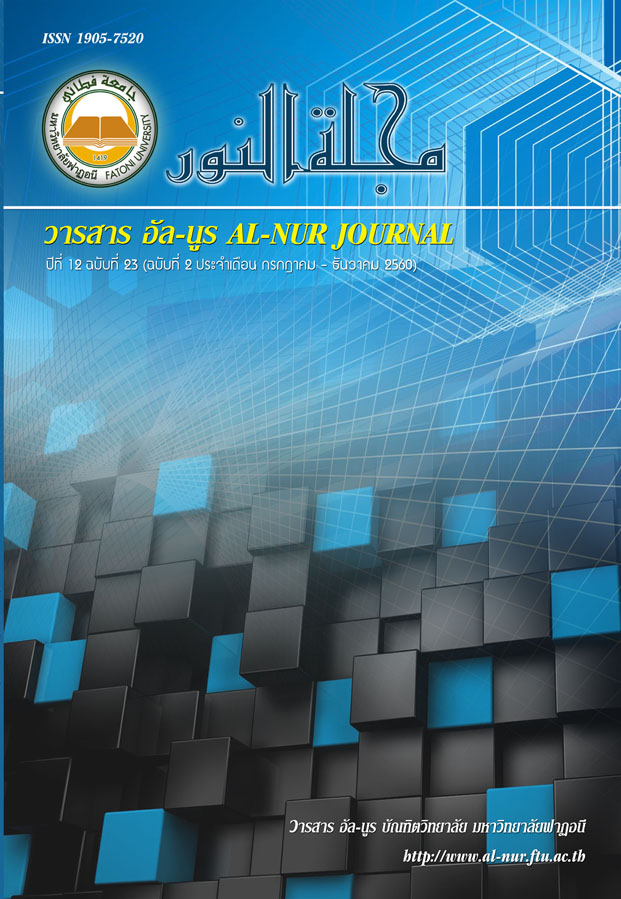Perceived Nursing Practices, Family Participatory Activities and Family Functions against Drug Relapse Prevention from Southern Drug Treatment Centers
Keywords:
การปฏิบัติกิจกรรมพยาบาล, การทำหน้าที่ของครอบครัว, การป้องกันการเสพยาซ้ำAbstract
Abstract
This descriptive research aimed to study perceived nursing practices upon family participatary activities and family functions against drug relapse prevention, from two southern drug treatment centers. Methods: Sample comprised 197 family members of drug-abused clients, who underwent a recent drug treatment program called the ‘FAST Model’. Data were collected through convenience sampling method, using face-to-face interview survey with volunteered participants from two In-Patient drug treatment centers, in southern region. Questionnaire covered demographic data, perceived nursing practices, family participatory activities, and family functions against drug relapse prevention. Data were analyzed by using descriptive statistic and Pearson’s product moment correlation. Results: Findings showed that an overall mean score of perceived nursing practices upon promoting family participation and of family functions against drug relapse prevention were at a high level = 2.86 (sd 0.33) and = 2.72 (sd 0.44) respectively, while the overall mean score of family participatary activities was at a moderate level = 2.50 (sd 0.50), on a scale of 0-4. Correlate analysis showed that there were positive correlations with statistically significant (at p < 0.01) between perceived nursing practices and family functions against drug relapse prevention at a moderate value, r = 0.30; and at a mild value, r = 0.29 with family participatary activities. Conclusion: These findings imply that it might be beneficial in promoting health care providers to collaborate with drug abused family member(s) to help improve “drug relapse” preventive care services and assist drug abusers to refrain from drug relapse effectively.
Keywords: Nursing Practices, Family Functions, Drug Relapse Prevention



